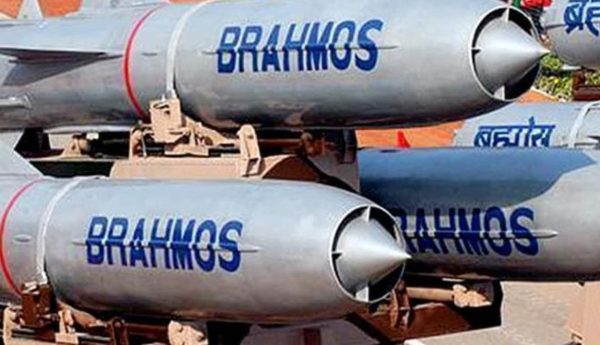
ISLAMABAD, March 8 (APP): On March 9 last year, an irresponsible and horrendous firing of a nuclear-capable Brahmos cruise missile which landed inside territory of Pakistan had exposed the appalling technical loopholes and egregious handling by the so-called Indian command and control system.
The rare incident last year also created furor in media and escalated the tensions between the two nuclear-armed nations.
The Indian authorities tried to cover up the incident and ordered a court of inquiry subsequently leading to the sacking of three air force low-grade officers for what it called the “accidental firing of a missile” into Pakistan.
Delhi had blamed the “deeply regrettable” incident on a “technical malfunction” during routine maintenance. Pakistan insisted on a joint inquiry.
According to Indian media, while denying Pakistan’s request for a joint probe, the Indian government constituted an internal court of inquiry into the incident, which concluded in August.
The inquiry found certain personnel of the Indian Air Force negligent in following standard operating procedures, the media quoted the Indian authorities.
The foreign office in Islamabad, however, termed the findings of the Indian court of inquiry “unsatisfactory, deficient, and inadequate.” Pakistan reiterated its call for a joint inquiry, stating that India had “evaded the questions raised by Pakistan regarding the command-and-control system in place in India, the safety and security protocols, and the reason for India’s delayed admission of the missile launch.”
According to experts, the Indian side reluctance to carry out a thorough inquiry manifested serious loopholes in the functioning and control of the so-called Indian Nuclear Command Authority.
For all nuclear issues or a military strategy involving nuclear factors, it is the National Command Authority, chaired by the prime minister, that makes decisions.
The Indian civilian political leadership through the Nuclear Command Authority was the only authority to allow use of nuclear weapons, they added.
“The Nuclear Command Authority comprises a Political Council and an Executive Council. The Political Council is chaired by the Prime Minister. It is the sole body which can authorize the use of nuclear weapons,” the Indian cabinet committee on security in one of its press statements had stated.
The experts were of the view that the missile had “endangered many passenger and international flights in Indian and Pakistani airspace” as well as “human life and property on the ground.”
A number of defence analysts were of the view that there appeared to be no other possible explanation as India’s sophisticated missile system lacked rigorous safety and security protocols.
“In other words, India’s lower chain of command apparently knew the launch codes, and it would be extremely dangerous in the case of missiles mated with warheads and other cannisterized (permanently armed) missiles,” they added.
Additionally, it reflected poorly on the training and psychological assessment of the Indian armed forces personnel and raised questions about their intent.
The experts said that by acting with restraint, Pakistan demonstrated that it was a responsible nuclear power and has an accountable, centralized authority to launch missiles which was globally acknowledged and highlighted by international media.
On the other hand, the India’s former civilian and military officials of the Strategic Forces Command during their media interviews had revealed that some of India’s nuclear weapons, especially those designed to be used against Pakistan, remained at a high state of readiness–even in peacetime–and were “capable of being operationalized and launched within seconds or minutes in a crisis.”
The Financial Express, India, said that there was no denying that the errors made by the missile crew in their respective operational and supervisory roles were grave since the incident could have had serious consequences internationally.
Other experts opined that the incident could be linked with the recent Hindutva-inspired developments inside India, but also the provocative pronouncements of senior Indian ministers with regard to Pakistan.
In the past, scores of anti-Pakistan bashing statements were made by different members of the ruling Bharatiya Janata Party, as well as other groups associated with the Hindutva ideology.




